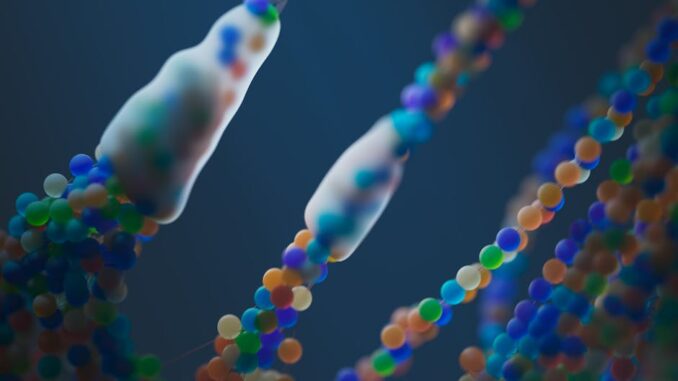
In a groundbreaking development, scientists have successfully 3D-printed insulin-producing cells, marking a significant stride in Type 1 diabetes treatment. This innovative approach utilizes a bio-ink composed of decellularized human pancreatic tissue and alginate, resulting in cells that not only survive but also function effectively over extended periods.
Advancements in 3D Printing for Diabetes Treatment
The traditional method of islet transplantation involves infusing insulin-producing cells into the liver, a process fraught with challenges such as cell loss and limited long-term success. In contrast, the 3D-printed cells are designed for subcutaneous implantation, a minimally invasive procedure requiring only local anesthesia and a small incision. This technique not only enhances cell survival but also maintains their functionality, offering a promising alternative for patients with Type 1 diabetes. (reuters.com)
Safeguard patient information with TrueNASs self-healing data technology.
Mechanism and Benefits of Bio-Ink Technology
The bio-ink used in this process retains key components of the extracellular matrix, providing structural support that is often lost in traditional islet cell preparations. This preservation improves cell viability and insulin response. Laboratory tests have shown that the printed cells remain alive and functional for up to three weeks, effectively responding to glucose levels. By day 21, the bio-printed islets exhibited a stronger ability to sense and react to blood sugar levels, maintaining their structure without clumping or breaking down. (reuters.com)
Potential Impact on Type 1 Diabetes Management
The success of 3D-printed insulin-producing cells could revolutionize diabetes care by providing a safer and more comfortable treatment option. Unlike traditional islet transplants, which require immunosuppressive drugs to prevent rejection, the subcutaneous implantation of these bio-printed cells may reduce the need for such medications. This advancement brings us closer to creating an off-the-shelf treatment for diabetes that could one day eliminate the need for insulin injections. (reuters.com)
Ongoing Research and Future Prospects
Researchers are currently testing the bio-printed cells in animal models and exploring long-term storage options to make the therapy widely available. The team is also investigating alternative cell sources, such as stem cell-derived islets and xeno-islets from pigs, to further enhance the efficacy and applicability of this treatment. If follow-up research confirms its effectiveness, this technology could revolutionize the treatment of diabetes, with the possibility of a future without daily insulin injections. (icthealth.org)
In summary, the development of 3D-printed insulin-producing cells represents a promising frontier in Type 1 diabetes management. By combining advanced printing techniques with biological materials, scientists are paving the way for treatments that are not only more effective but also less invasive, offering hope for a future where diabetes management is more streamlined and less burdensome for patients.
References
-
Health Rounds: 3D printed insulin-producing cells show promise for type 1 diabetes in lab tests. Reuters. July 2, 2025. (reuters.com)
-
3D bioprinted islets promise breakthrough in diabetes treatment. ICT&health Global. July 2, 2025. (icthealth.org)
-
Scientists create functional 3D-printed human islets for type 1 diabetes treatment. Medical Xpress. June 30, 2025. (medicalxpress.com)
-
3D Printing Mini-Capsule Device for Islet Delivery to Treat Type 1 Diabetes. PubMed. (pubmed.ncbi.nlm.nih.gov)
-
Three-dimensional printed polymeric system to encapsulate human mesenchymal stem cells differentiated into islet-like insulin-producing aggregates for diabetes treatment. PubMed Central. (pmc.ncbi.nlm.nih.gov)


Given the potential reduction in immunosuppression, what are the anticipated long-term effects of subcutaneous implantation on immune system response and overall patient health?
That’s a crucial question! The long-term immune response is definitely a key focus of ongoing research. It’s hypothesized that the bio-ink’s composition could minimize rejection. Scientists are actively monitoring the immune system’s reaction in animal models to better understand potential long-term effects on patient health and refine the approach.
Editor: MedTechNews.Uk
Thank you to our Sponsor Esdebe
So, no more pesky insulin injections, eh? Wonder if we could 3D print a pancreas that craves kale instead of donuts while we’re at it? Lifestyle add-ons!